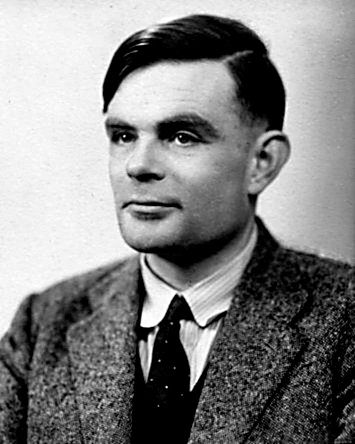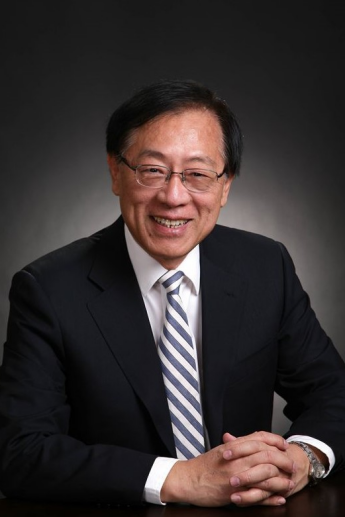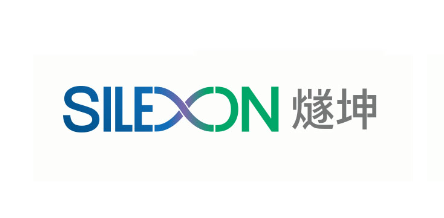The Turing Award is the highest international award in the field of computing, known as the “Nobel Prize of the computer industry”, which is a computer award established by the United States Computer Association (ACM) in 1966, and its name is taken from Alan · Matheson· Turing, a United Kingdom scientist, “father of computer science” and “father of artificial intelligence”.
○ The award is designed to reward individuals who have made significant contributions to the computer industry, and it is awarded to only one computer scientist per year. Academician Yao is the only Chinese scientist to receive this honor so far, and the only winner in the Eastern Hemisphere.

Alan · Matheson · Turing○ Not long ago, General Secretary Xi Jinping replied to Academician Yao Qizhi, extending sincere greetings to him and putting forward ardent hopes. When the news reached the Turing Institute of Artificial Intelligence, everyone was very excited, because it was also an affirmation and encouragement to all scientific and technological workers.
○ Yao Zhizhi, academician of the Chinese Academy of Sciences, the only Chinese Turing Award winner, dean of the School of Artificial Intelligence of Tsinghua University, and dean of the Institute for Interdisciplinary Information Sciences, has taught in United States universities for a long time, returned to China in 2004 to teach at Tsinghua University, prepared for the establishment of the “Yao Class” in 2005, and led the establishment of the Institute for Interdisciplinary Information Sciences of Tsinghua University in 2010.

Yao Chi-zhi
○ In 2018, Yao Qizhi established an artificial intelligence research institute to further promote the transformation and industrialization of scientific and technological achievements in the field of artificial intelligence. This is the only artificial intelligence research institute named after “Turing” in China, located in Nanjing, Qixia High-tech Zone, Nanjing.
○ Qixia District has built China (Nanjing) Wisdom Valley, which is now home to a large number of artificial intelligence enterprises, and has become one of the artificial intelligence industrial bases with the highest degree of agglomeration, the strongest innovation momentum and the best comprehensive supporting facilities in Jiangsu Province.

01What the hell is the CEO going to do
○ Li Qiang, a professional manager named by Yao Chizhi, runs the Turing Artificial Intelligence Research Institute led by him. Sitting in his office, he often thinks of an interview he had in Mr. Yao’s office many years ago.
○ This is the first time Li Qiang has met this prestigious academician.
○ In an hour, Li Qiang strongly felt that Yao Qizhi was more concerned about whether he was interested in artificial intelligence and Turing Academy, and whether he could regard the operation of Turing Institute as an important event.
○ Li Qiang said: “Artificial intelligence is a major wave of the future. It was unrealistic to turn back the clock and make me go back 20 years ago and not choose to study communication and information and re-learn artificial intelligence, but Turing Academy gave me the opportunity to start over. ”

Li Qiang
○ Maybe it was Li Qiang’s straightforwardness that moved Yao Chizhi’s heart, and Yao Chizhi also talked a lot about his positioning and expectations for Turing Institute that day, “Since I have done it, I have to make this one choice”. Yao Qizhi’s words gave Li Qiang great encouragement.
○ This interview made both parties fall to the ground.
○ So, what exactly does the CEO of Turing Academy do? To sum it up in one sentence, it is to help these scientists, who are best at research, and who are most afraid of trivial affairs, move scientific and technological achievements from the bookshelf to the shelf.
○ Li Qiang believes that the development of artificial intelligence does not require a long manufacturing production line, or close to the raw material supply base, but talent is the most important. Nanjing has always been good at science and education, and there are many institutions of higher learning, which have made significant efforts in science and technology innovation in recent years.
○ At the beginning of the establishment of the Turing Institute, the Qixia District Government set up a “Turing Service Group” to help the Institute solve various problems encountered in the early stage of landing, and also provided 5-year rent-free carriers and targeted support funds, and realized in-depth binding cooperation in the form of shares.02More than 60 enterprises have been incubated and invested
○ After the establishment of the Turing Institute, it mainly did two things: one was to set up its own scientific research team; The second is to act as an incubator to support start-ups in the field of artificial intelligence.
○ Turing Institute has discovered many high-quality projects and helped them connect technology, market, and capital, and soon incubated a number of artificial intelligence companies in vertical fields.
○ For example, Suikun Intelligence, which was established under the incubation of Turing Academy, is an AI+ innovative biomedical R&D platform company that uses artificial intelligence algorithms to discover disease targets and improve the efficiency of new drug screening.

Within 6 years, there have been more than 60 incubation and investment enterprises in Turing Academy, and nearly 30 incubation enterprises have landed in Qixia alone.
○ The road is also bumpy, and the Turing Monastery has also encountered development bottlenecks. Fortunately, Yao Qizhi’s support for the Turing Institute has always been in close communication with Nanjing, and he attaches great importance to the development of the Turing Institute.
○ With the team’s scientific research ability becoming more and more mature, the Turing Institute can now receive horizontal projects worth tens of millions of yuan every year, so that the institute itself has a self-hematopoietic function.
○ In addition, the development of large models has also brought new opportunities to the artificial intelligence industry, and good projects have been emerging, and some projects that originally encountered bottlenecks have also taken a turnaround.
○ For example, an AI medical company incubated by Turing Institute in the past specializes in medical image recognition, but it is very vertical, and can only achieve image recognition of cancer cells in a specific organ of the human body, and it is difficult to migrate the recognition ability to other organs. After the introduction of large models, enterprises have more room for development.03Target young talent earlier
○ On a nice afternoon, a tent was erected on the grass at the Zidong Ecological Conference Center near the Turing Courtyard, with fruit and tea on the table, and visitors chatted attentively with entrepreneurs from start-ups in the field of artificial intelligence.
○ There was a young man sitting in a seat not far from Li Qiang, wearing a dark polo shirt like Li Qiang, and he was high-spirited and talkative. This is Rui Zhou, who is still studying for a PhD at the Massachusetts Institute of Technology, and is also one of the residents of the third phase of the Turing Entrepreneur-in-Residence (EIR) Base established by the Turing Institute.
○ As the field of artificial intelligence becomes more popular, start-ups have more choices for incubation platforms. How to target those young AI talents who are still in school earlier and give them all aspects of support in entrepreneurship? That’s what the launch of the Turing Entrepreneur in Residence (EIR) Base is all about.
○ Zhou Rui started his own company Xiongxing Technology during his sophomore year in 2020. After cooperating with Turing Academy, the other party not only connected the adapted technology to the project, but also connected with many customer resources in related fields. At present, Zhou Rui has been in contact with many Yangtze River Delta automobile companies, and the main direction of the future is to reduce costs and increase efficiency for automobile companies through artificial intelligence.

In the past few years at the helm of the Turing Academy, Li Qiang has made new observations on the artificial intelligence industry. He noticed that when AlphaGo appeared in the past, although everyone was surprised, most of them were still spectators, and they couldn’t experience it, so they could only watch the news; But now, everyone can use large models, feel the transformation of AI in the world, and support the development of this industry.
○ Not long ago, Turing Institute and Qixia District Government signed a cooperation agreement for the second phase. Compared with the first phase of the agreement, which focuses more on scientific research, this time there are more industrial-oriented indicators, such as what size the incubated company can develop into in the future, and even whether it can grow into a unicorn enterprise.
○ In Li Qiang’s view, now that the market is really harvesting, if it was “incubating seedlings” before, what should be done now is to “raise big trees”, which is also in line with Mr. Yao’s expectations for Turing Academy.






